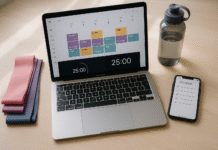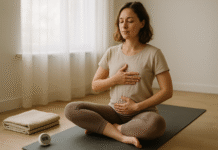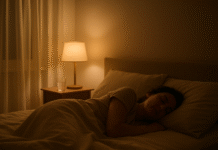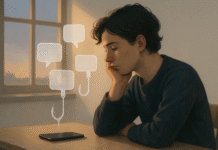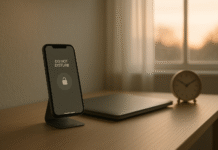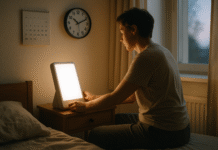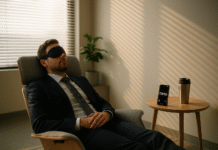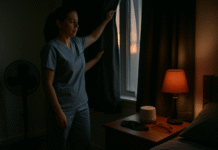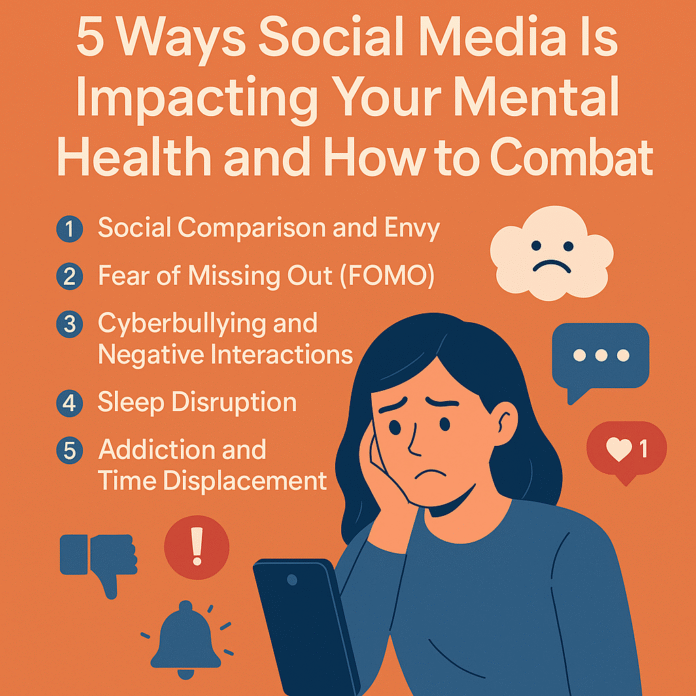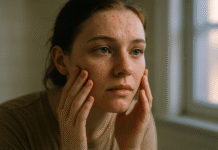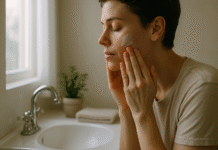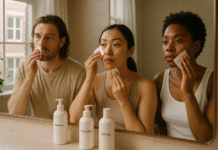Social networking sites are a huge aspect of our lives now that we live in a digital world.
It’s clear that social media is a terrific way to stay in touch with friends and family and find out what’s going on in the globe. But there is more and more proof that spending a lot of time on social media sites like Instagram, Facebook, TikTok, and Twitter could be hazardous for your mental health. This article speaks about five primary ways that social media can affect your mental health and gives you some advice on how to make these impacts less intense.
You can use social media in a balanced and thoughtful way that keeps your mind healthy if you know about the psychological aspects at play, like social comparison, FOMO (Fear of Missing Out), cyberbullying, sleep disturbance, and addictive behaviors.
1. How jealousy and comparing yourself to others can hurt your mental health
Social comparison theory says that people can find out how useful they are by seeing how well other people are doing. People who use social media see beautifully made highlight reels of beautiful trips, achievements, and stylish selfies that set standards that are impossible to meet. Studies show:
- Teenagers who look at other people’s Instagram posts say they are sadder.
- Less self-esteem: Young adults who look at “idealized” photos usually don’t like their bodies or themselves.
How to Fight Back: Pick What You See
- Stop following people that make you feel horrible about yourself or envy.
- Follow those who are honest and don’t change what they say.
- Write down things that make you joyful in a journal:
- Every day, write down five things that make you happy. People who are thankful are less likely to feel horrible about themselves when they look at other people.
- Make sure your aims are possible:
- Don’t compare yourself to other people; compare yourself to how you used to be. Instead of thinking about what you’ve done outside of yourself, think about how you’re growing better at your abilities or routines.
- Do something instead than scrolling:
- Don’t just read or watch; get engaged by sending messages or writing comments. When people are active, they are less jealous and get along better.
2. How the fear of missing out (FOMO) affects mental health
People with FOMO are afraid that other people are having fun without them all the time. Research shows:
- More stress: People who have a lot of FOMO are generally worried and stressed about not being part of anything.
- Sleep problems: Checking social media late at night to “stay in the loop” could make it hard to sleep.
- People claim they check for updates 58 times a day on average so they don’t miss anything.
How to Get Around Digital Barriers:
- Set aside times and places when you can’t use technology, like an hour before bed or while you eat.
- Mindfulness Breaks:
- Use the “5-4-3-2-1 grounding” strategy when you experience FOMO. Name five things you can see, four things you can touch, three things you can hear, two things you can smell, and one item you can taste.
- Check‑ins on a regular basis:
- Don’t spend all of your time on Facebook and Twitter. Instead, glance at it twice a day, every day.
- Being a part of the real world:
- Do some things in person instead of online to suit your social demands. You may join a group, do some volunteer work, or make plans to meet pals for coffee, for example.
3. Cyberbullying and other unpleasant interactions could hurt your mental health
People who fear or worry others online are cyberbullies. It has hurt roughly 37% of young people. This is what happens next:
- People who have been victims are two to nine times more likely to damage themselves than people who haven’t been victims.
- Being bullied online can make you feel bad, bring back memories, and put you on edge for a long time.
How to Stop Reporting and Privacy Tools:
- You can change the settings on the platform to block or mute people who are annoying you.
- Most sites make it easy to report dangerous content.
How to Train for Digital Resilience:
- Cognitive‑behavioral therapy (CBT) can help you adjust how you talk to yourself when someone abuses you on the internet.
- Doing self‑compassion exercises could help you keep things that hurt you from getting to you.
Networks of Support:
- If someone is bullying you, talk to individuals you trust, like friends, family, or mental health professionals.
- Find a group, either online or in person, where you can talk about your difficulties and how you deal with them.
Going to court:
- If things get really terrible, you can receive help from the police or legal aid to secure protective orders or sue someone for lying about you. You might also use screenshots or URLs as proof.
4. Sleep issues that make your mental health worse
Screens’ blue light and social media’s brain stimulation can keep you up at night.
- Sleep onset delay: Using your phone at night can prohibit you from sleeping well and maybe even give you insomnia.
- All day long: Not getting enough sleep makes anxiety, anger, and memory difficulties worse.
How to Get Around Blue Light Filters & Night Mode:
- Put your devices in “night mode” or wear glasses that block blue light after dark.
- Sabbath in Today’s World: Take a vacation from social media at least once a week to assist your body’s natural rhythms get back on track.
- A evening routine that helps you relax: Instead of wasting time on screens, do something that helps you relax. You may read a book, do some light stretching, or meditate.
- No electronics in the bedroom: Keep your devices out of the bedroom so you may sleep better and not be tempted.
5. Being addicted and wasting time
How it affects your mental health
Social networking services keep people interested by delivering them continuous updates, notifications, and algorithmic material. What happens is:
- People claim they waste an average of 58 minutes a day on social media, which makes them less productive.
- When people use too much of it, they can feel lonely and unsatisfied with their lives. This can harm their relationships and activities that happen in person.
How to Fight Back: Use Apps to Watch Over Things
- Digital Wellbeing for Android and Screen Time for iOS are two apps that help you keep track of how much time you spend on apps and limit it.
- Set Goals on Purpose: Think about what you want to do before you make an app. Close the app if you don’t know why you need it.
You can play these games during your breaks:
- You may use the Pomodoro Technique to plan your time both online and in person. This implies you should work for 25 minutes and then take a 5-minute rest. Give yourself a treat when you do chores that aren’t on the internet.
- Things to do more: Find old interests that don’t involve screens, such as reading, cooking, and taking walks in nature.
More techniques to improve your health in general
A holistic approach makes people stronger because it doesn’t only look at one effect at a time:
- Meditation to Be Here: Doing anything for 10 to 20 minutes every day can help you stop worrying and relax. Apps like Headspace and others include workouts that are led by a coach.
- Ways to get around: Exercise releases endorphins, which make you feel better, and it can take the place of the time you spend on social media.
- Getting advice from a pro: You should talk to a licensed mental health professional if you’re still having difficulties with social media. Two types of therapy that have been shown to benefit are Cognitive Behavioral Therapy (CBT) and Acceptance Commitment Therapy (ACT).
- How to teach people how to use technology: Learn more about algorithms, privacy, and how the media may be used to prevent outside influence and promote critical thinking.
In summary
Social media may be terrible for your mental health in many ways, such as when you compare yourself to others, feel like you have to be on it all the time, are bullied online, can’t sleep, or do things that are hard to quit doing. The first step to become more involved is to know about these risks. You can take back control of your digital environment and enjoy the benefits of social media without affecting your health by curating it, setting limits, being mindful, and asking for help when you need it.
Keep in mind that finding a balance is crucial. Don’t let social media get in the way of your work or make you stressed. Use it to talk to people and acquire ideas.
FAQs
- Is it ever okay to use social media?
Yes. If you use social media the right way and focus on building good connections, receiving excellent information, and taking planned breaks, it can help with community, learning, and self-expression. - How long is too long to stare at a screen?
Experts believe that people who aren’t working should only use screens for leisure for one to two hours a day. But everyone has different needs, so pay attention to how you feel, how well you sleep, and how much work you get done to see whether you’re using it too much. - Are some platforms worse for your mental health than others?
People are more likely to compare themselves to others when they use apps that have pictures, like Instagram. But sites like Reddit that are based on discussion can lead to heated fights. Find out which platforms make you feel bad and then do things that make you feel better. - What if I don’t want to quit using social media?
You don’t need to do that. You may use your devices in a healthy way without having to quit using them completely if you follow “digital hygiene” standards like taking breaks, filtering content, and checking in carefully. - When do you need to see a professional?
You should see a mental health professional if using social media makes you anxious, depressed, or hinders you from sleeping or doing your typical chores. Getting started early gives you greater results.
References
- Festinger, L. (1954). A Theory of Social Comparison Processes. Human Relations, 7(2), 117–140. https://doi.org/10.1177/001872675400700202
- Fardouly, J., Diedrichs, P. C., Vartanian, L. R., & Halliwell, E. (2015). Social comparisons on social media: The impact of Facebook on young women’s body image concerns and mood. Body Image, 13, 38–45. https://doi.org/10.1016/j.bodyim.2014.12.003
- Vogel, E. A., Rose, J. P., Roberts, L. R., & Eckles, K. (2014). Social comparison, social media, and self‑esteem. Psychology of Popular Media Culture, 3(4), 206–222. https://doi.org/10.1037/ppm0000047
- Emmons, R. A., & McCullough, M. E. (2003). Counting blessings versus burdens: An experimental investigation of gratitude and subjective well‑being in daily life. Journal of Personality and Social Psychology, 84(2), 377–389. https://doi.org/10.1037/0022‑3514.84.2.377
- Staat, M., et al. (2022). Active vs. Passive Social Media Use: Implications for Mental Health. Journal of Computer‑Mediated Communication, 27(1), 1–15. https://doi.org/10.1093/jcmc/zmab004
- Przybylski, A. K., Murayama, K., DeHaan, C. R., & Gladwell, V. (2013). Motivational, emotional, and behavioral correlates of fear of missing out. Computers in Human Behavior, 29(4), 1841–1848. https://doi.org/10.1016/j.chb.2013.02.014
- Exelmans, L., & Van den Bulck, J. (2016). Bedtime mobile phone use and sleep in adults. Social Science & Medicine, 148, 93–101. https://doi.org/10.1016/j.socscimed.2015.11.037
- Dhir, A., Yossatorn, Y., Kaur, P., & Chen, S. (2018). Online Social Media Fatigue and Psychological Well‑Being—A Study of Compulsive Use, Fear of Missing Out, and Social Media Use Intensity. International Journal of Information Management, 40, 141–152. https://doi.org/10.1016/j.ijinfomgt.2018.01.012
- Patchin, J. W., & Hinduja, S. (2020). Cyberbullying Research Center. https://cyberbullying.org





